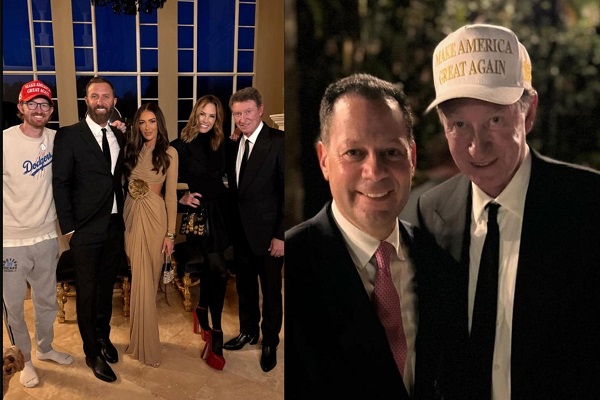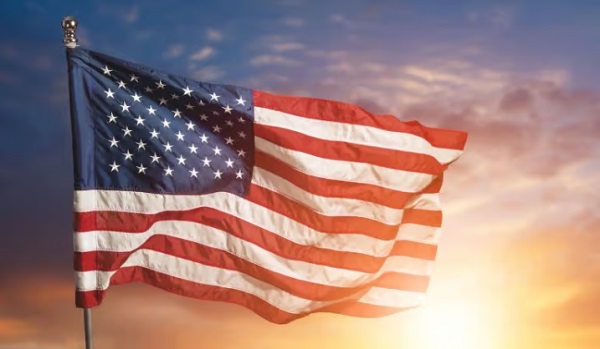Bruce Dowbiggin
Jerry Came to See The Babies. And They Walked Out On Him
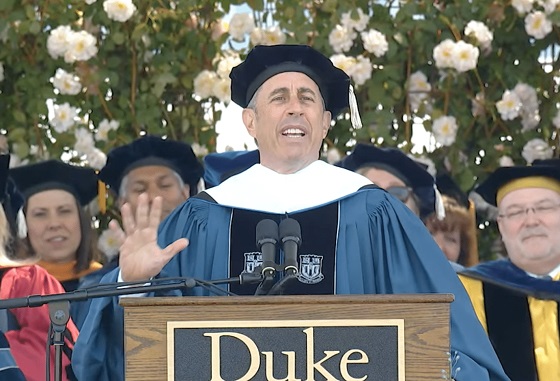
Cometh the hour, cometh the comedian. Or, you can learn a lot about a demographic by what makes them laugh.
The legacy/ lunacy media schvitzed itself over a few furious sociology majors and look-at-me drama queens walking out on Jerry Seinfeld’s commencement address at Duke University last weekend. But the significance of his admission that he was 70 was probably far more newsworthy to those now in retirement, binge-watching his eponymous TV series on one of those down-the-dial channels.
If we had a dollar for every Boomer who said, “Seinfeld is 70?” while watching the address we’d be Warren-Buffett-rich this morning. He doesn’t look like any 70 year olds we know. Fifty? Maybe. But listening to his familiar delivery, the mocking on his honorary degree costume, it was easy to believe that we, too, are much younger than our blood-thinner prescriptions say.
It also pointed out the evolution of Boomers’ comedic tastes. When they came of age in the late 1960s/ early 1970s Woody Allen best profiled as his generation’s comedic muse. With a dozen classic movies ranging from What’s New Pussycat (1965) through Play It Again Sam (1972) to Annie Hall (1977) Allen’s self-deprecating nebbish captured the romantic/ridiculous self-image of Boomers with “Some drink deeply from the river of knowledge. Others only gargle”.

The neurotic, insecure Allen then decided to become Ingmar Bergman, and Boomers— now assembling jobs, children and first spouses— moved on. But for that 12-year span the bedraggled standup comedian was the go-to with lines like “Just because you’re paranoid doesn’t mean they aren’t out to get you” and “The only love that lasts is unrequited love.”
Woody’s pointed contemporary political references in those years were few (conflating “D’you” for “Jew” with Tony Roberts in Manhattan) and self-deflating (see Annie Hall). His most prominent political jabs were framed in absurdist material like Love And Death and Bananas. Culturally he was merciless but affectionate about his Brooklyn upbringing. In short his were perfect date movies for Boomers seeking love to advertise their pretensions.
Flash forward from Woody to Seinfeld (created with Larry David) which was anti-romantic in the extreme. The characters were sociopaths. The situations often cringeworthy. The 24-minute formula harkened back to Lucy and the Honeymooners. And while schlock like Friends trod the same ground it was Seinfeld that somehow captured the Boomer zeitgeist.
Why? Boomers going through middle age were too disillusioned with how life was turning out to romanticize anymore. The self-obsessed characters were people they knew from work, school and dealing with government. Smirking Bill Clinton was the face of an era. “When we did my show in the 90s, it was so easy to make fun of things. It was so easy,” Seinfeld told Amy Schumer.
Significantly, Seinfeld the Show was cultural. Or quasi-cultural. It was never about politics per se. It was about the people who thwart you in life. Whose vanity ruins your plans from school days. Who go 50 mph in the left lane. “When is Jerry going to see the baby?” It rarely challenged its fans on an emotional level. It was mostly about navigating madness.
And often about the most mundane elements of life. The address on the weekend contained The Seinfeld Doctrine of Lowered Expectations. “It’s easy to fall in love with people. I suggest falling in love with anything and everything, every chance you get. Fall in love with your coffee, your sneakers, your blue zone parking space. I’ve had a lot of fun in life falling in love with stupid, meaningless physical objects.
“The object I love the most is the clear-barrel Bic pen — $1.29 for a box of 10. I can fall in love with a car turn signal switch that has a nice feel to it, a pizza crust that collapses with just the right amount of pressure. I have truly spent my life focusing on the smallest things imaginable, completely oblivious to all the big issues of living.”
Reaching across the generations Seinfeld delivered Dad jokes and bromides to kids who education probably cost $100 K a year. “I think it is also wonderful that you care so much about not hurting other people’s feelings in the million and one ways we all do that,” he said. Then he explained why that might be a fruitless pursuit. Not in Curb Your Enthusiasm darkness. But sobering.
That’s why it was in character for him to let the furious demonstrators depart at Duke without comment. So was appearing at Duke, the Ivy League of Tobacco Road, founded by the people who made jillions selling nicotine. And why he let them garb him like Thomas Cromwell in the absurd 16th century cape and hat so he could score few laughs.

Because laughter is his means of dealing with jerks like the outbound Hamas crowd. “What I need to tell you as a comedian: Do not lose your sense of humour. You can have no idea at this point in your life how much you are going to need it to get through. Not enough of life makes sense for you to be able to survive it without humour.”
Yes, He has been vocal lately about the effect of political correctness ruining TV comedy. Drawing flak from former friends and fans who are in the Biden re-education camps at the moment. But his annoyance at ruining an art form far outweighed any complaints about Covid and Ukraine.
As opposed to the nihilism of his former partner David, his insouciance and comic patter represent an antidote for where most of his original fans are at the moment. Woody Allen, their former idol, is now seen as a pedo and a failed nouveau vage auteur. Disillusioned with virus lies, electoral shenanigans and soaring prices, Boomers on a pension are unanchored, floating through what used to be North American society (when only women had babies).
In fact, Boomer spectators watching Seinfeld’s 17-minute speech maybe summed it up for themselves by recalling the Seinfeld mantra, “It was a show about nothing.” And they’d be right. Jerry is the man for those times.
Bruce Dowbiggin @dowbboy is the publisher of Not The Public Broadcaster A two-time winner of the Gemini Award as Canada’s top television sports broadcaster, he’s a regular contributor to Sirius XM Canada Talks Ch. 167. Now for pre-order, new from the team of Evan & Bruce Dowbiggin . Deal With It: The Trades That Stunned The NHL & Changed Hockey. From Espo to Boston in 1967 to Gretz in L.A. in 1988 to Patrick Roy leaving Montreal in 1995, the stories behind the story. Launching in paperback and Kindle on #Amazon this week. Destined to be a hockey best seller. https://www.amazon.ca/Deal-Trades-Stunned-Changed-Hockey-ebook/dp/B0D236NB35/
Bruce Dowbiggin
The Pathetic, Predictable Demise of Echo Journalism
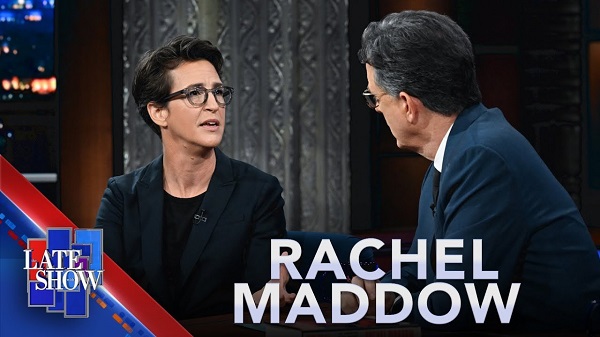
It can be safely said that the 2024 U.S. presidential election couldn’t have gone much worse for legacy media in that country. Their biases, conceits and outright falsehoods throughout the arduous years-long slog toward Nov. 5 were exposed that night. Resulting in the simultaneous disaster (for them) of Donald Trump winning a thunderous re-election and their predictive polling being shown to be Democratic propaganda.
Only a handful of non-establishment pollsters (Rasmussen, AtlasIntel) got Trump’s electoral college and overall vote correct. Example: One poll by Ann Selzer in Iowa—a highly-rated pollster with a supposedly strong record—showed a huge swing towards Harris in the final week of the election race, putting her three points up over Trump. He ended up winning Iowa by 13.2 points (Selzer now says she’s retiring.)
Throughout, these experts seemed incapable of finding half the voter pool. By putting their thumb on the scale during debates, the representatives of the so-called Tiffany networks and newspapers signalled abdication of their professional code. Their reliance on scandal-sheet stories was particularly glaring.
Just a few lowlights: “the brouhaha over a shock comedian at a Trump rally calling Puerto Rico “a floating island of garbage”. Unhinged outgoing POTUS Biden then called GOP voters “garbage”. So Trump made an appearance as a garbage man, to the snarky disapproval of CBS News chief anchor Nora O’Donnell.

Then there was Whoopi Goldberg on The View predicting Trump will “break up interracial marriages and redistribute the white spouses: “He’s going to deport and you, put the white guy with someone else… The man is out there!” Media ran with this one, too.
Worse, disinformation and lying reached such a proportion that Team Trump turned its campaign away from the networks and legacy papers down the stretch, creating a new information pathway of podcasts and social media sites (such as Joe Rogan, Theo Von and Adin Ross) that promise to be the preferred route for future candidates looking for non-traditional voters. A few prominent media owners sought to save themselves by refusing to endorse a presidential candidate, but the resulting tantrum by their Kamala-loving staff negated the effort.
In the past, poor performances by the Media Party might be dismissed or ignored. But the cataclysmic ratings drops for CNN and MSNBC paired with collapse in sales for blue-blood rags such as the New York Times, Washington Post and L.A. Times spoke to the public’s disgust with people they’ve always trusted to play it straight.
(Now Comcast has announced it’s spinning off MSNBC and its news bundle to save their profitable businesses. Staff members in these places are now panicking. As such the new administration promises to be indifferent to the former media powers-that-be as Trump mounts radical plans to recast the U.S. government. )
As noted here the disgraceful exercise in journalism was cheered on by their compatriots here in Canada. “In the hermetically sealed media world of Canada, natives take their cues from CNN and MSNBC talking points both of which employ Canadians in highly visible roles. (Here’s expat Ali Velshi famously describing on NBC that the 2020 George Floyd riots that burned for weeks— destroying billions in damages while resulting in multipole deaths— as “generally peaceful”.)
The narratives of Russiagate, drinking bleach, “fine people” to Hunter Biden’s laptop— long ago debunked down south— are still approved wisdom in Canada’s chattering class. Especially if America’s conflagration election can be used to demonstrate the good sense and judgment of Canada’s managerial and media class.
The clincher for star-struck Canadians was the overwhelming Kamala love from the Hollywood crowd. Virtually every high-profile actor/ singer/ writer embraced the woman who was parachuted into the nomination in a coup— even as the same glitterati raved about anti-democratic Trump. From Beyoncé to Bilie Eilish to Bruce Springsteen, their support was been a winner in Canada’s fangirl/ fanboy culture.”
Talk about backing a loser. Which leaves us asking what to expect from formerly respected media in the upcoming (it will come, won’t it?) defenestration of Justin Trudeau and Jagmeet Singh, probably in spring of 2025. One Toronto Star piece might provide a clue to the bunkered approach of Canada’s globalists. “Europe is leaving Donald Trump’s America behind. Should Canada do the same? As American democracy dives into darkness, Canada is facing difficult choices.”
CPC leader Pierre Poilievre has made it abundantly clear his thoughts on the bias of media. To save billions, he is making a major overhaul— even closure of CBC (not Radio Canada)— as a campaign pledge. He’s also said he will remove the slush fund now propping up failed establishment news organizations that employ unionized workers bent of crushing the Conservatives.
His scorn is obvious after watching media’s reverential treatment of Trudeau’s fake “murdered” Rez children stunt or the silence accompanying PMJT’s sacking of his indigenous Justice minister Jodie Wilson Raybould. Lately, a deadpan Poilievre humiliated a callow CBC reporter quoting “experts” by asking her “what experts?” Her unpreparedness leaves her floundering as Poilievre calls her question another “CBC smear job”.

Perhaps the classic Poilievre humbling of a reporter occurred in 2023 in a Kelowna apple orchard when a reporter seeking to score points with his Woke colleagues saw the bushwhack rebound on him. After numerous failed attempts at belling the cat, the local reporter played his ace card.
Question: Why should Canadians trust you with their vote, given … y’know … not, not just the sort of ideological inclination in terms of taking the page out of Donald Trump’s book, but, also —
Poilievre: (incredulous) What are you talking about? What page? What page? Can you gimme a page? Gimme the page. You keep saying that … “
No page was produced and the cringeworthy interview collapsed.
Needless to say, the reporter was absolved by his water-carrying colleagues. Here was Shannon Proudfoot of the Toronto Star: “Kicking a journalist in the shins over and over then turning the exchange into a social-media flex is telling on yourself…” Venerable CBC panelist/ Star columnist Chantal Hébert echoed the pauvre p’tit take. “Agreed”.

For these press box placeholders it’s all too reminiscent of the acid-drenched style of former PM Stephen Harper, a stance that turned them to Trudeau cheerleaders in 2015. Which is to say we shouldn’t have high hopes for balance when the writ is finally dropped.
Poilievre has several more ministers (Melissa Lantsman, Garrett Genuis) skilled in exposing media imbalance, so we can expect full-blown pushback from the paid-for media from the usual suspects when Trudeau finally succumbs to reality. One drawback for the Conservatives could be the absence of national podcasters such as Rogan or Von to which they can pivot.
But make no mistake, However much Canada’s press corps denies it, the public has turned away from Mr Blackface and the politics of privilege. They’d best anticipate a rough ride ahead.
Bruce Dowbiggin @dowbboy is the editor of Not The Public Broadcaster A two-time winner of the Gemini Award as Canada’s top television sports broadcaster, he’s a regular contributor to Sirius XM Canada Talks Ch. 167. His new book Deal With It: The Trades That Stunned The NHL And Changed hockey is now available on Amazon. Inexact Science: The Six Most Compelling Draft Years In NHL History, his previous book with his son Evan, was voted the seventh-best professional hockey book of all time by bookauthority.org . His 2004 book Money Players was voted sixth best on the same list, and is available via brucedowbigginbooks.ca.
Bruce Dowbiggin
CHL Vs NCAA: Finally Some Sanity For Hockey Families
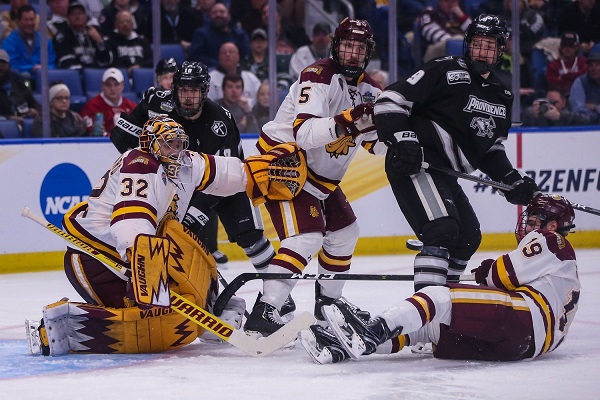
In forty-years-plus of covering sports you develop hobby horses. Issues that re-appear continuously over time. In our case, one of those issues has been pro hockey’s development model and the NCAA’s draconian rules for its participants. Which was better, and why couldn’t the sides reach a more reasonable model?
In the case of hockey the NCAA’s ban on any player who played a single game in the Canadian Hockey League created a harsh dilemma for hockey prodigies in Canada and the U.S. Throw your lot in with the CHL, hoping to be drafted by the NHL, or play in a secondary league like the USHL till you were eligible for the NCAA. Prospects in the CHL’s three leagues — the OHL, QMJHL and WHL —were classified as professional by the NCAA because they get $600 a month for living expenses, losing Division I eligibility after 48 hours of training camp. The stipend isn’t considered income for personal tax purposes.”
Over the decades we’ve spoken with many parents and players trying to parse this equation. It was a heartbreaking scene when they gambled on a CHL career that gave them no life skills or education. Or the promised NCAA golden goose never appeared after playing in a lower league for prime development years.
There were tradeoffs. NCAA teams played fewer games, CHL teams played a pro-like schedule. The NCAA awarded scholarships (which could be withdrawn) while the CHL created scholarships for after a career in the league (rules that players getting NHL contracts lost those scholarships has been withdrawn). There were more contrasts.
As we wrote here in 2021, it might have stayed this way but for a tsunami created by the antitrust issue of Name Image Likeness for NCAA players who were not paid for the use of their NIL. When the U.S. Supreme Court ruled on the issue in 2015 it warned the NCAA that its shamateurism scheme had to change. That created revolution in the NCAA. Athletes now receive healthy compensation for their image in video and digital products. They can also take million-dollar compensation from sponsors and boosters.
Portals allow them to skip from team to team to find millions in compensation. One of the many changes in the new NCAA was its prohibition against CHL players. To forestall future lawsuits costing millions, it recently made hockey players eligible for the same revenues as football and basketball players. Now the NCAA has voted to open up college hockey eligibility to CHL players effective Aug. 1, 2025, paving the way for major junior players to participate in the 2025-26 men’s college hockey season.
Which, we wrote in 2022, would leave hockey’s development model vulnerable. “As one insider told us, “The CHL model should be disrupted. Archaic and abusive.” NIL won’t kill the CHL but it could strip away a significant portion of its older stars who choose guaranteed money over long bus rides and billeting with other players. It’s early days, of course, but be prepared for an NHL No. 1 draft pick being a millionaire before his name is even called in the draft.”

As we wrote in May of 2022 “A Connor McDavid could sign an NIL styled contract at 16 years old, play in the NCAA and— rich already— still be drafted No. 1 overall. Yes, college hockey has a lower profile and fewer opportunities for endorsements. Some will want the CHL’s experience. But a McDavid-type player would be a prize catch for an equipment company or a video game manufacturer. Or even as an influencer. All things currently not allowed in the CHL.”
Effectively the CHL will get all or most of the top prospects at ages 16-19. After that age prospects drafted or undrafted can migrate to the NCAA model. Whether they can sign NHL contracts upon drafting and still play in the NCAA is unclear at this moment. (“On the positive side, we will get all the top young players coming to the CHL because we’re the best development option at that age,” one WHL general manager told The Athleltic’s Scott Wheeler.

One OHL GM told the Athletic “As the trend increases with American players looking for guarantees to sign, does a CHL player turn down an opportunity to sign at the end of their 19-year-old year with the hopes that a year at 20 in NCAA as a free agent gives them a better route to the NHL?”
The permutations are endless at the moment. But, at least, players and their families have a choice between hockey and education that was forbidden in the past. Plus, they can make money via NIL to allow them to stay for an extra year of development or education. The CHL will take a hit, but most young Canadian players will still see it as the logical launching pad to the NHL.
Now, for once, families can come first on the cold, nasty climb to the top hockey’s greasy pole.
Bruce Dowbiggin @dowbboy is the editor of Not The Public Broadcaster A two-time winner of the Gemini Award as Canada’s top television sports broadcaster, he’s a regular contributor to Sirius XM Canada Talks Ch. 167. His new book Deal With It: The Trades That Stunned The NHL And Changed hockey is now available on Amazon. Inexact Science: The Six Most Compelling Draft Years In NHL History, his previous book with his son Evan, was voted the seventh-best professional hockey book of all time by bookauthority.org . His 2004 book Money Players was voted sixth best on the same list, and is available via brucedowbigginbooks.ca.
-

 Brownstone Institute2 days ago
Brownstone Institute2 days agoThe Most Devastating Report So Far
-

 Business2 days ago
Business2 days agoCarbon tax bureaucracy costs taxpayers $800 million
-

 ESG1 day ago
ESG1 day agoCan’t afford Rent? Groceries for your kids? Trudeau says suck it up and pay the tax!
-

 John Stossel1 day ago
John Stossel1 day agoGreen Energy Needs Minerals, Yet America Blocks New Mines
-
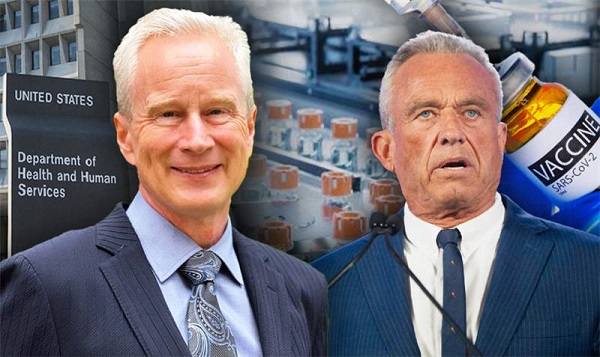
 COVID-192 days ago
COVID-192 days agoDr. McCullough praises RFK Jr., urges him to pull COVID shots from the market
-

 Daily Caller1 day ago
Daily Caller1 day agoLos Angeles Passes ‘Sanctuary City’ Ordinance In Wake Of Trump’s Deportation Plan
-

 Alberta1 day ago
Alberta1 day agoProvince considering new Red Deer River reservoir east of Red Deer
-

 MAiD2 days ago
MAiD2 days agoOver 40% of people euthanized in Ontario lived in poorest parts of the province: government data


